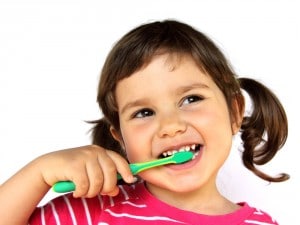Dentists and researchers are constantly looking for ways to break down the social inequalities that exist in the world of dental health. A recent survey carried out by the University of Copenhagen and the World Health Organization has found that schools can play a big role in educating their students on dental health and thus breaking down the barriers of inequality.
More About The Survey
In garnering the results of the survey researchers questioned over 60 countries that run dental health programs in their schools. The results show that schools that provide education in dental hygiene and have cultivated a healthy school environment are playing a big role in preparing kids to lead healthy lives later on. This extends beyond the realm of dental health. Kids that come from a school where health and dental health are important and taught along with curriculum are more likely to develop an overall healthier lifestyle. This included areas like:
-
Healthy diet, awareness of the role diet plays in health.
-
The importance of physical exercise.
-
The dangers of tobacco use.
-
The detrimental effects of alcohol use.
-
Knowledge about the spread of HIV and preventative measures.
More than half of the countries that participated in the study run actual workshops that teach young children how to brush their teeth and other dental hygiene techniques. However, although all the countries in the study were working towards educating kids on proper oral hygiene, not all of the countries had access to clean water or fit sanitary conditions to actually carry out this education. This was especially true of some countries in Asia, Latin America and particularly Africa. This makes teaching oral health all the harder on school officials. There was also the issues of sugary drinks and treats. Because many teachers in these countries are underpaid, they would often sell these products to young children on school grounds. Some of the poorest countries whose schools did have some sort of dental health education program were not employing the use of products containing fluoride (a major tool in fighting poor oral health), either because they were not properly trained or didn’t have the financial support necessary to do so. Another interesting obstacle faced by the poorer countries that participated in the study is they found it harder to relay their results and experiences to the proper sources.
These differences in equality between poor and wealthier countries also exist within individual countries everywhere. An example the study gave was Denmark. Although Denmark is generally a well-off country that has an excellent education system that incorporates dental health and hygiene, there are still groups that are disadvantaged and suffer the pain of dental complications. More and more researchers are coming to believe that these inequalities can be remedied through the school system.
Through various studies and surveys it’s been echoed again and again: oral health is an indicator of overall health and wellness. Those who are taught to value the health of their teeth will treat the rest of their body with the same respect. Talk to your child’s school administration about what sort of dental education programs their school offers. And call Dr. D’Alfonso of Lakeway Center for Cosmetic and Family Dentistry today to make sure that your family is taken care of!
